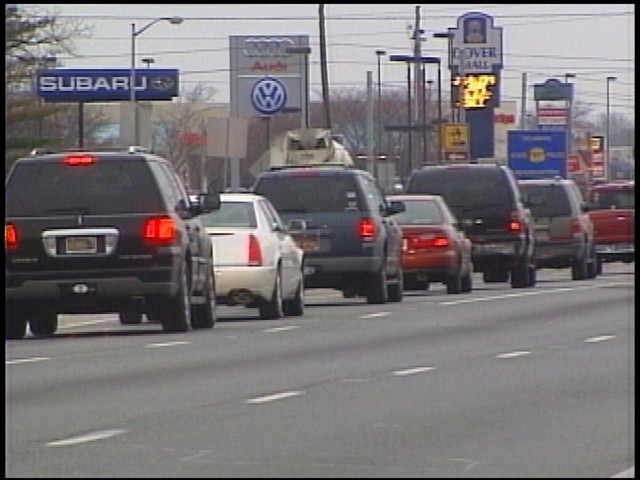Most of the state - more than two-thirds of Georgia counties - won't be affected when the regional transportation taxes kick in Jan. 1. That's because the referendum on the ballot statewide in the July 31 primary elections bombed in most of Georgia. The state was divided into 12 voting regions. Nine of them rejected the idea.
Three voting regions in east, southeast and west Georgia approved the extra penny on the promise that the money will be spent locally to widen roads and rural highways, fix sidewalks, install new traffic lights and maintain and repair aging bridges.
"Some are things that have been on the books for years," said Andy Crosson, executive director of the Central Savannah River Area Regional Commission, where voters approved the tax for 13 counties near the Georgia-South Carolina line, including Augusta and surrounding Richmond County. "I think it passed out of frustration that the money always seemed to go somewhere else and our projects never got done. This was our chance."
The Savannah River region is projected to raise $848 million with the new tax, according to the state's latest estimates from November, which vary slightly from numbers released before the election.
The River Valley region, which has 16 west Georgia counties and includes Columbus and Americus, expects $591 million over the 10-year tax period.
And there will be an estimated $395 million for the Heart of Georgia region of 17 mostly rural counties that includes the cities of Vidalia, Dublin and Jesup.
How will the tax work? Three-fourths of the money will go to a pre-approved list of transportation projects that officials in each region agreed to before the vote last summer. In Richmond County, for example, more than $22.7 million will pay for improvements to relieve congestion on the Riverwalk Parkway, a major commuter road that connects suburban Columbia County to downtown Augusta.
The remaining 25 percent of revenues will be divided among municipal governments for small, local projects.
The Heart of Georgia region was allowed to put an even larger share of the money toward road repairs and other small jobs at the local level. The region has a list of 752 local projects on tap and they were key to selling the tax to voters, said Brett Manning, executive director of the Heart of Georgia Regional Commission.
Manning said the region covers some of the most rural areas in Georgia, places that don't see too many state or federal transportation dollars. There aren't many major highways, but small communities were willing to pay to get money for fixing potholes and resurfacing roads in their own back yards.
"When people look and see that their road is on that list, they're going to vote for it," Manning said. "They may not be that crazy about a 1 percent tax increase. But if their road is going to get paved, they'll go for it."
Communities in Georgia that rejected raising the sales tax to pay for transportation projects could face higher costs when it comes time to resurface or repair local roads.
When the legislation was crafted, it contained a provision enticing voters to approve it. Under that provision, regional districts that approved the tax increase must use their own funds to pay for 10 percent of any projects covered by the state-run Local Maintenance and Improvement Grant fund, a $110 million program that helps county governments repave or overhaul local roads.
Regions that rejected the sales tax increase must pay 30 percent of their own money when using the program. The situation creates a dilemma for policymakers, some of whom have promised it will be repealed. Enforcing the provision could prove risky because raising the sales tax was unpopular with so many voters.
The state estimates the transportation tax will generate $152 million in its first year. The state Department of Revenue will collect the sales tax and pass it to the Georgia State Financing and Investment Commission. The commission will hold the 75 percent set aside for regional transit projects in trust. Those funds will be used as needed by the state Department of Transportation, which is overseeing the regional projects. The local share of the tax will be returned to municipal governments, with the first deposits expected in March.
Regional directors in all three Georgia regions that approved the tax increases said the first road projects should get moving between summer and fall next year.
In the River Valley region of West Georgia, planners expect the DOT to start accepting bids by mid-year on a $31.7 million contract to widen roughly 8 miles of U.S. Highway 27 in Randolph County. The highway travels 350 miles through western Georgia, from Tennessee to Florida, and since the 1990s most of it has been expanded to four lanes. The stretch through Randolph County will be one of the last to be widened.
West Georgia voters were willing to pay higher taxes in hopes that better roads will attract more industry, said Patti Cullen, executive director of the River Valley Regional Commission.
"We realized federal and state money for road improvements is going away," Cullen said. "The state of Georgia has got to figure out a way to maintain the roads."

(File photo)
http://accesswdun.com/article/2012/12/256458
